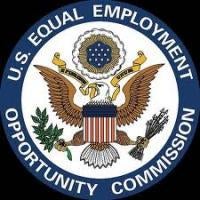First Checks Being Mailed Under Decree Ending One of Longest-Running Sexual Harassment Cases in EEOC History
CHICAGO – The U.S. Equal Employment Opportunity Commission (EEOC) has announced that checks are now being distributed pursuant to an $8 million consent decree entered by federal district judge Joan Gottschall in what is believed to be one of the longest-running sexual harassment cases in EEOC history. Defendant International Profit Associates (IPA), the employer responsible for the sexual harassment of its female employees, is a telemarketer of small business consulting packages, located in Buffalo Grove, Illinois.
The decree provides for payment and distribution of the full $8 million in installments over three years. IPA made initial payments totaling $2.5 million into a professionally administered settlement fund on March 7, 2011, and checks are now being mailed to 82 women who were the victims of the harassment. The decree also provides for wide-ranging injunctive relief against IPA. The company’s compliance with the decree will be overseen by two court-appointed monitors.
“"All employees are entitled to a workplace that is free of sexual harassment,” said EEOC General Counsel P. David Lopez. “Unfortunately, there is a continuing need for law enforcement in this area, and this consent decree makes an important contribution to our mission to eradicate sexual harassment with its strong injunctive relief provisions and the relief provided to the individual women."
The case (EEOC v. International Profit Associates, N.D. Ill. No. 01-CV-4427), was filed in federal court in Chicago on June 12, 2001 under Title VII of the Civil Rights Act of 1964. The amount of the payments being made today varies with the severity of the harassment suffered by each of the victims, with the highest payments being $70,000 and the average payment being in the range of $30,000. When the final installment payments are made and distributed, the average of all payments per victim will be approximately $100,000 per person.
According to the EEOC, IPA had a pattern or practice of sexually harassing its female employees, and the court made a formal finding to that effect, upon IPA’s concession, on June 14, 2010, prior to trial. The EEOC had alleged that the harassment involved a systemic pattern of sexual assaults and propositions, inappropriate touching, and crude sexual comments. EEOC had also contended that the highest ranking officers of IPA not only fostered a pattern and practice of sexual harassment but personally engaged in the harassment themselves.
There were extended delays in the more than nine year course of the litigation, as IPA filed numerous motions which the EEOC described as frivolous. These included a series of unsuccessful motions for sanctions by which IPA asked the court to punish EEOC in connection with the agency’s pursuit of the case. Trial of the case began on July 6, 2010. On the first day, in the middle of jury selection, IPA advised the EEOC and the court that it was willing to meet EEOC’s demands.
The balance remaining due on the $8 million decree is being personally guaranteed by the principal founder, owner, and chief executive of IPA He has, in addition, secured his personal guaranty by signing mortgages on certain of his personal real estate interests.
John Hendrickson, EEOC regional attorney in Chicago, said, “We are convinced that the $8 million consent decree in this case—yielding more dollars per person that either our Mitsubishi or Dial sexual harassment cases—is an excellent result, but we cannot find anything positive to say about the fact that an employer strung out a piece of civil rights litigation in the federal courts for almost 10 years.”
“But whatever the employer’s strategy,” Hendrickson continued, “the EEOC never waivered. We were determined to pursue a just result which provided appropriate relief for the victims of IPA’s discrimination and served the public interest no matter how long it took. We were not going to go away. IPA’s obstruction and delay never really figured in our expectations in the case, and that will continue to be true, just as it is in all of our cases.”
Diane Smason, the EEOC supervisory trial attorney responsible for the case, said “The claims in this case were based on allegations of absolutely egregious sexual harassment. We wanted the relief provided for in the consent decree to be appropriate in that context. We also wanted the relief to reflect the fact that the court itself made a specific finding that IPA had engaged in a pattern or practice of discrimination. The decree and the fact that that sizeable checks are going out to the victims of IPA’s discrimination are signal achievements. It’s going to be a better day for all the women covered by the decree.”
The consent decree includes injunctions against sexual harassment and retaliation, and measures designed to promote the eradication of harassment and accountability on the part of managers. It requires that IPA pay for two monitors who will review its policies and practices with respect to sexual harassment, assess its compliance with the training, prevention, and other measures being imposed, accept complaints of sexual harassment from employees, and report to the EEOC and the court. IPA must also report regularly to the EEOC on its handling of sexual harassment complaints. In the event IPA fails to measure up to the legal standards memorialized in the decree EEOC is authorized to return to court to seek additional court enforcement.
In addition to Hendrickson and Smason, the case was litigated by Chicago trial attorneys Jeanne Szromba and Ann Henry, with trial attorney Aaron de Camp joining the team prior to the scheduled trial.



 />i
/>i

